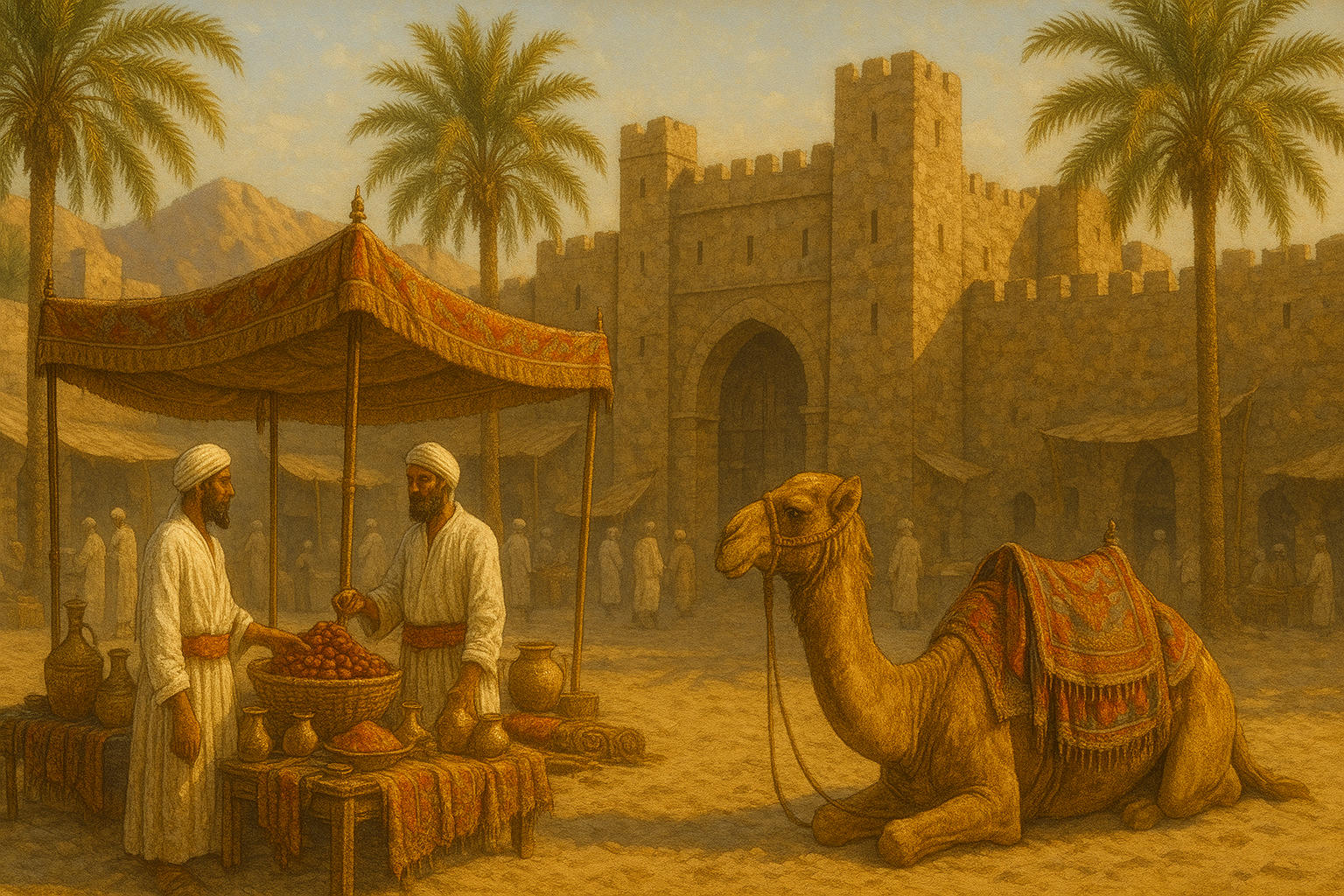In the heart of the Middle East, beneath golden sunsets and towering palm trees, grows a fruit that’s as regal as the region’s ancient dynasties — the date.
More than just a sweet snack, dates have a royal legacy. From feeding prophets and kings to symbolizing hospitality and abundance, dates have been cherished for over 6,000 years. Their history is deeply intertwined with the culture, economy, and spiritual life of the region.
🌿 A Sacred Beginning
The story of dates begins with the date palm tree, one of the oldest cultivated trees in human history. Archaeological evidence suggests that dates were harvested as early as 4000 BCE in Mesopotamia (modern-day Iraq). These fruits quickly became central to life in desert regions — they were nutrient-rich, long-lasting, and resilient in arid climates.
🕌 Dates in Islam and Spiritual Traditions
In Islam, dates are not just food — they are blessed. The Prophet Muhammad (PBUH) broke his fast with dates and water, and they are mentioned more than 20 times in the Qur’an. During Ramadan, Muslims around the world continue this Sunnah by breaking their fasts with dates each evening.
This religious association elevated the date to something sacred — a fruit of divine favor and healing.
👑 A Royal Staple on the Arabian Table
In ancient Arabia and Persia, dates were considered royal food. Emperors, sheikhs, and sultans indulged in the finest varieties, often served in golden bowls or alongside honey, nuts, and milk. Dates weren’t just consumed — they were gifted as symbols of respect and honor during royal ceremonies, weddings, and diplomatic meetings.
Even today, in many Gulf countries including the UAE and Saudi Arabia, visitors are greeted with Arabic coffee and dates, a tradition that reflects both hospitality and nobility.
🌴 The Tree of Life
The date palm itself was so vital to desert life that it earned the nickname "Tree of Life." Beyond its fruit, its leaves were used for weaving baskets and mats, its trunk for building shelters, and its fronds for shading marketplaces.
In ancient kingdoms, palm trees were often planted along trade routes and palaces — serving as both landmarks and a source of sustenance.
💼 Trade, Wealth & Empire
Historically, dates played a major role in the economies of Middle Eastern empires. Caravans carrying spices and textiles also included baskets of dates, which were traded across Africa, Asia, and Europe. They became a form of currency in some regions — a valuable good exchanged between traders, pilgrims, and nobles.
In modern times, this tradition continues. Countries like the UAE, Saudi Arabia, Egypt, and Iran are still leading exporters of dates, with some varieties (like Ajwa, Medjool, and Sokari) considered global delicacies.
✨ The Legacy Lives On
From Bedouin tents to royal courts, dates have traveled through time as symbols of wealth, spirituality, and survival. They continue to hold their place of honor in modern-day homes, especially during celebrations like Ramadan, Eid, and weddings.
And as luxury date brands like Kingdom Dates UAE and Choco Dubai reimagine this ancient treasure with gourmet twists — the legacy of the royal date lives on, sweetening the present just as it did the past.
Wrap-Up:
So, next time you enjoy a date — whether stuffed with almonds, dipped in chocolate, or eaten the traditional way — know that you're indulging in something far greater than a treat.
You're savoring a piece of royal Middle Eastern history.

